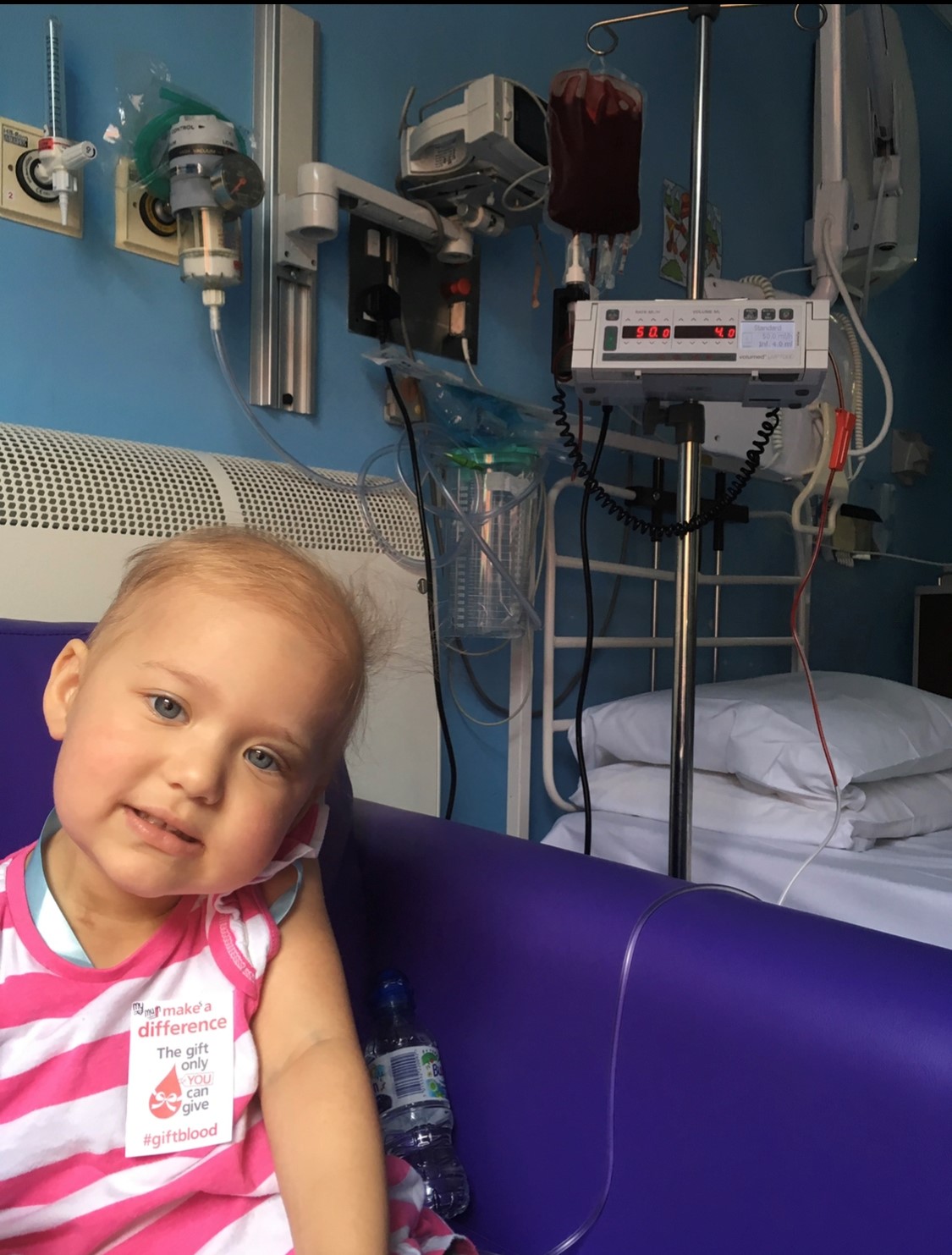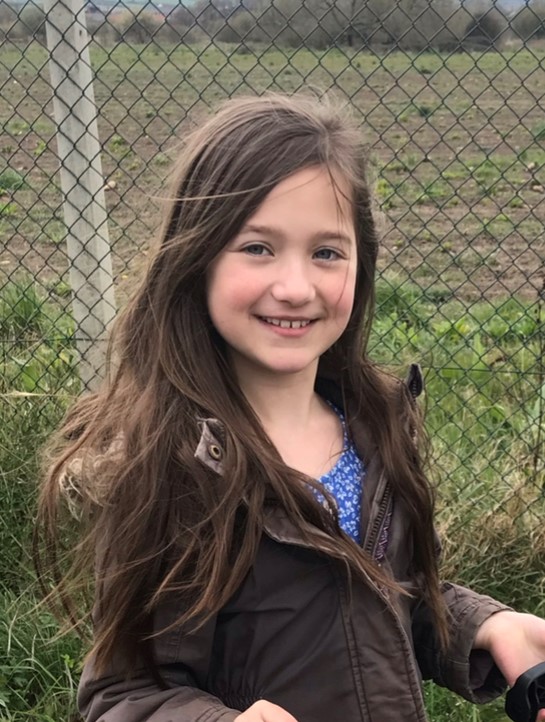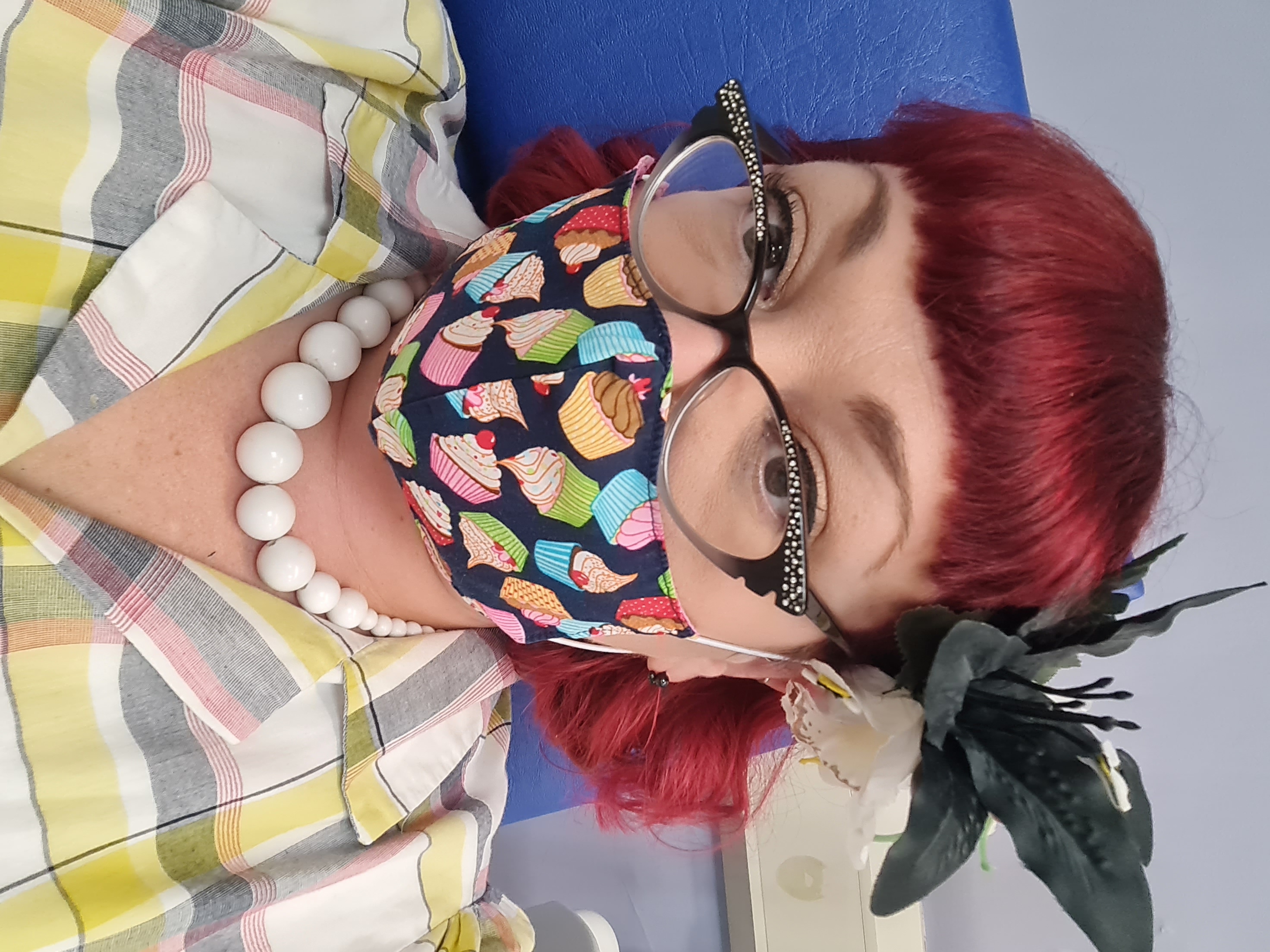Platelet donation
Find out more about switching to platelets
Nearly 70 per cent of platelet donations are used to help people with cancer. Sophie was diagnosed with acute lymphoblastic leukaemia when she was just two and a half. She is now four years into remission and doing wonderfully…
Platelets are small blood cells that help blood to clot. They are often used to treat people undergoing chemotherapy.
 Nicola says, "My daughter, Sophie, was diagnosed with acute lymphoblastic leukaemia (ALL) in 2016, when she was just two and a half. Initially she came down with flu-like symptoms. She was pale, hot, lethargic and had a nasty cough. She was seen by a doctor who said she was suffering from a viral infection and prescribed her amoxicillin and steroids. Sophie seemed to recover, although she remained pale. Then a few weeks later her continued paleness became more concerning when she started to seem tired during the day.
Nicola says, "My daughter, Sophie, was diagnosed with acute lymphoblastic leukaemia (ALL) in 2016, when she was just two and a half. Initially she came down with flu-like symptoms. She was pale, hot, lethargic and had a nasty cough. She was seen by a doctor who said she was suffering from a viral infection and prescribed her amoxicillin and steroids. Sophie seemed to recover, although she remained pale. Then a few weeks later her continued paleness became more concerning when she started to seem tired during the day.
(Picture: Sophie receiving treatment in hospital)
"Sophie was referred to the paediatrician to have a blood test. That same day after nursery, Sophie went to a friend’s soft play party and although happy and eating well, she didn't want to play and sat on my lap for the two hours we were there. We were waiting for the results a few days later when a purple pin prick rash appeared on her neck. At this point I put Sophie in the car and started for A&E. En route I received the phone call from the paediatrician asking me to take her for a blood test and so we went straight to the children's assessment unit at Musgrove Park Hospital in Taunton.
"Once there the doctor on charge looked her over. She immediately expressed her concerns and told me to prepare myself for a diagnosis of leukaemia. Sophie’s bloods were taken and within an hour it was confirmed to us that she had acute lymphoblastic leukaemia (ALL), which is a type of blood cancer that starts from white blood cells called lymphocytes in the bone marrow.
"We spent the night at Musgrove Park Hospital. During the night Sophie was given a blood transfusion, platelets and fluids. The following morning, we were transferred to Bristol Royal Children's Hospital where we stayed for two weeks and where her chemotherapy treatment began.
"Sophie went through two years and four months of chemotherapy. During that time, she received 20 red cell transfusions and 13 platelet transfusions. In one week alone, she needed three of blood and three of platelets.
"She is now eight years old, four years into remission and doing wonderfully! Thank you to all donors for your wonderful gift! You’re amazing!"

Thank you to all donors for your wonderful gift!
Platelets are tiny gold-coloured cells in your blood which help it to clot and stop bleeding. Platelet transfusions can help people with cancer and people who've lost a lot of blood after an accident, organ transplant and other surgery.
One donation can help up to three adults or 12 children.
Platelets last just seven days after they’ve been donated, so we rely on people to donate regularly throughout the year.
We need people with A negative, AB negative and A positive blood types to step forward and donate platelets to help people with cancer. There are 25 donor centres to donate at, with appointments to suit during the daytime, evenings and weekends.
One platelet donation can help up to 12 children.
Find out if you could become a platelet donor.
 "I’ve been donating platelets for a few years now. I usually donate once or twice a month, sometimes it depends on the demand for my blood type. My last donation was my 51st! It doesn't feel like it.
"I’ve been donating platelets for a few years now. I usually donate once or twice a month, sometimes it depends on the demand for my blood type. My last donation was my 51st! It doesn't feel like it.
"I started donating blood originally because I wanted to help others in some small way. I noticed the trucks at my local public hall and thought... why not! Initially I was a whole blood donor quite regularly.
(Picture: Kelly has donated platelets more than 50 times)
"When I resumed my donations, at Luton donor centre, one of the lovely staff members asked me if I had considered platelet donation because they really need my blood type, A positive. My response was "I’m sorry what??". I didn’t know at the time what platelets were. She gave me some information to read, took a sample of blood to send off to check if I was eligible and answered all the questions I had. The rest is history I guess! I haven’t looked back since.
"The platelet donation process is very simple! Not much different to whole blood (just a tad longer and a fancier machine!). It’s very relaxing; once all plugged in on my machine, I take the opportunity to catch up on my reading. It’s an hour I get to myself, also the lovely staff are always about for a chat and a cuppa which makes the time go by.
"Knowing who your platelets help is very rewarding, it keeps you going (back) I find. At the end of the day, it’s just a couple of hours out of your day every couple of weeks.
"To someone considering donating platelets, I would say it’s a no brainer, do it, come join our club! It’s so simple and saves so many lives."